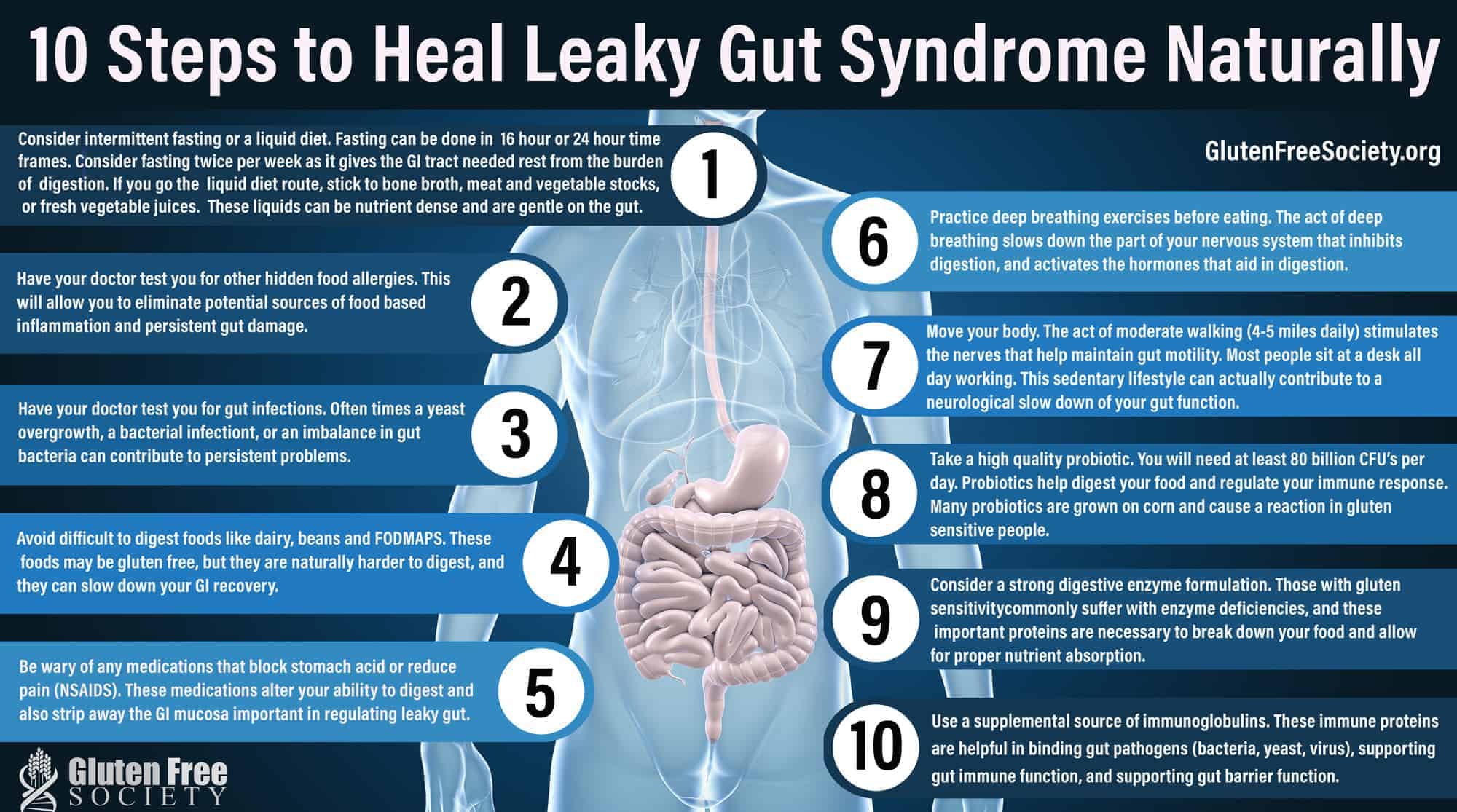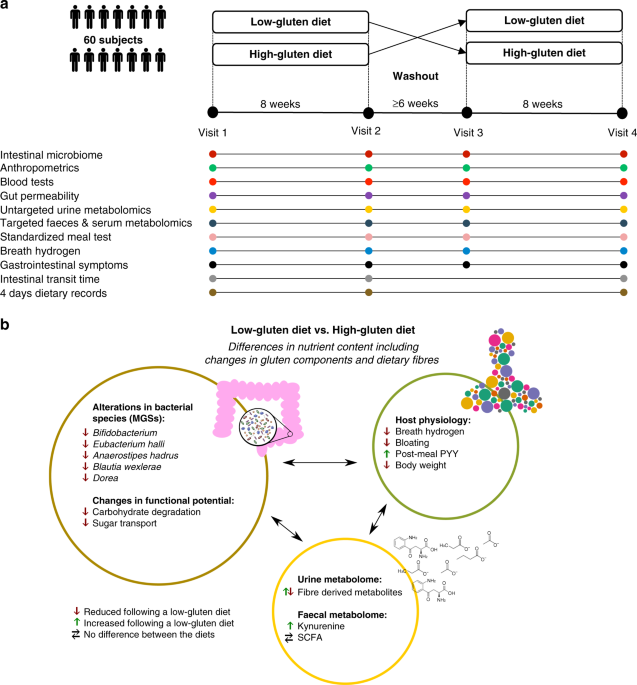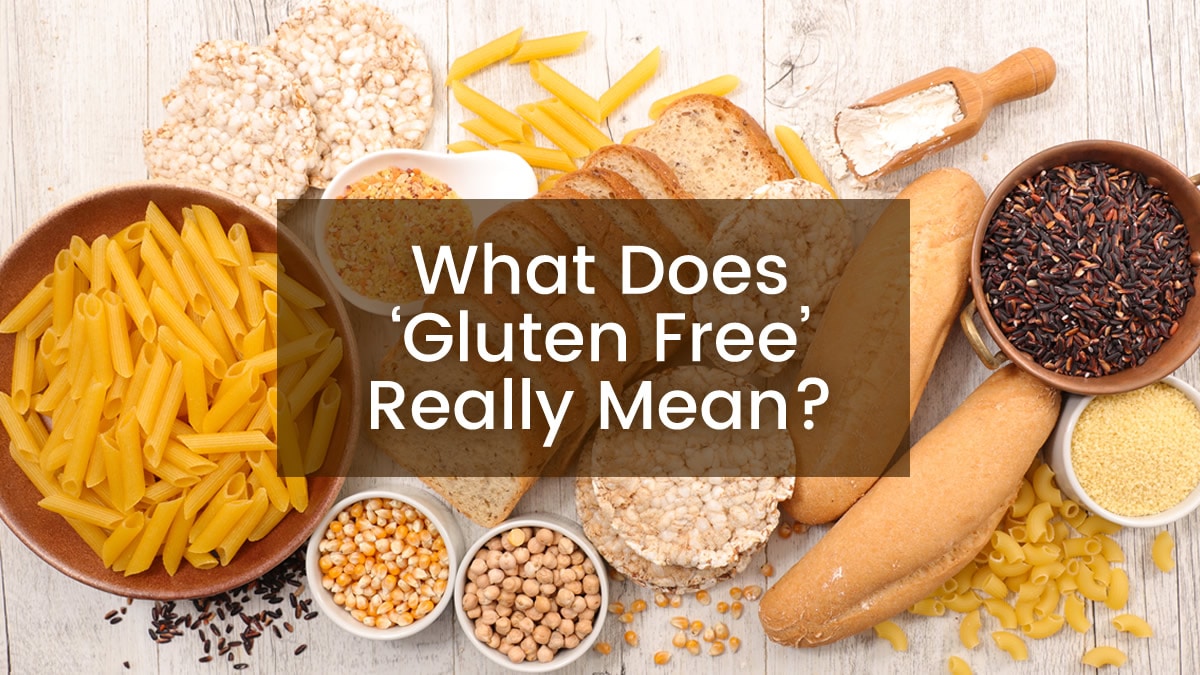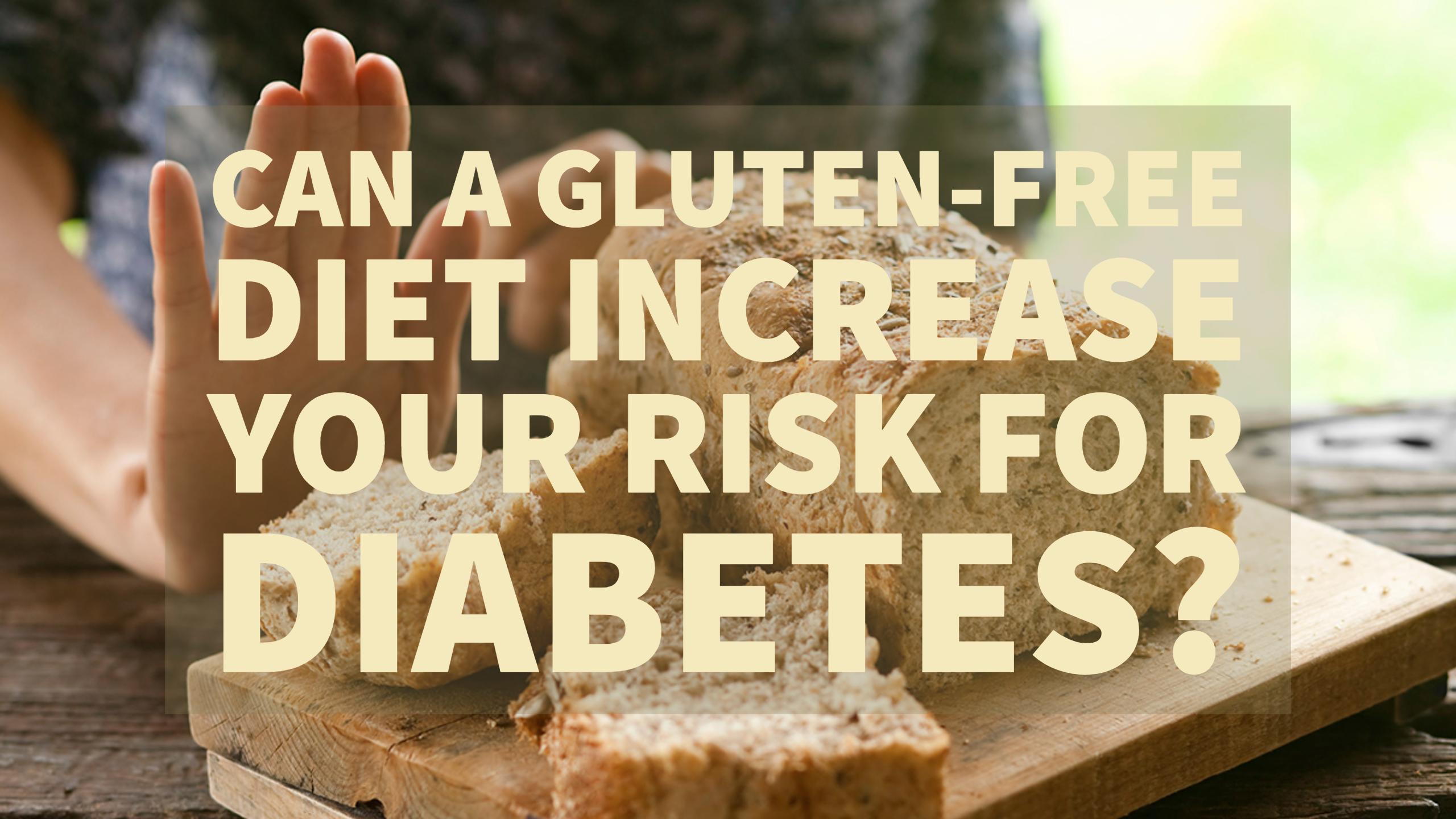Antwort Does going gluten-free improve gut health? Weitere Antworten – Is gluten-free better for your gut health

Ultimately, avoiding processed foods is far more effective than cutting out gluten altogether. As discussed, many gluten-free products are highly-processed and can be harder to digest, less nutritional, and harmful for the gut microbiome.After you stop eating foods with gluten, your symptoms will likely get better in a few days. Your small intestine should heal completely in 3 to 6 months. Your villi will be back and working again. If you are older, it may take up to 2 years for your body to heal.Although gluten-free products are proven to be beneficial for those who need them, they're not any healthier than those that contain gluten. And while following a gluten-free diet is safe, keep in mind that any diet that relies heavily on processed foods is unlikely to result in any health benefits.

Does gluten inflame the gut : It affects the small intestine – the part of the digestive system responsible for absorbing nutrients. If you have coeliac disease, eating gluten – a protein found in wheat, rye, barley, and oats – causes damage to the lining of your small intestine. It also causes inflammation in other parts of your body.
What happens to your gut when you stop eating gluten
Many people report digestive symptom improvement within a few days of dropping gluten. Fatigue and brain fog often start getting better in the first week or two. This is a gradual process, though.
Why do I feel better when I eat gluten-free : Gibson says the real reason that many people who have cut out gluten claim to feel healthier is simply because they've changed their diets. "I've noticed [this] lots of times, even with family members," Gibson told Levinovitz. "They've decided they're eating a lot of takeaway foods, quick foods, not eating well at all.
Some people report feeling dizziness, nausea, extreme hunger and even anxiety and depression when they suddenly go from eating a lot of gluten to being gluten-free. These symptoms usually go away after a few weeks on a gluten-free diet, but talk to your health care provider if they persist.

Notably, along with other dietary elements, gluten may contribute to the development of inflammatory intestinal disorders, such as inflammatory bowel disease (IBD), as well as functional gastrointestinal disorders (FGIDs) and concur in symptom exacerbation, although its exact role is still under investigation.
What happens to your body when you stop eating gluten
There's no scientific evidence to suggest that people actually go through “withdrawal” when they stop eating gluten. Some people report feeling dizziness, nausea, extreme hunger and even anxiety and depression when they suddenly go from eating a lot of gluten to being gluten-free.A typical gluten face will present with red, puffy cheeks, with spots of hyperpigmentation around the chin. Some people will also have pimples spread out over the chin. Your face can also become bloated or swollen.My energy improved, my weight went back to normal, and my hair stopped falling out. I felt better than I had in months. And nothing tastes as good as feeling healthy! Taylor was thrilled that perhaps she too had found a way to change her health for the better.

So, how long does gluten stay in your system Individuals without a gluten intolerance, wheat allergy, or celiac disease have a gluten transit time of up to 4 hours in the stomach, 6 hours in the small intestine, and 59 hours in the colon. Therefore, it takes 2-3 days for your system to eliminate gluten entirely.
Why is everyone gluten intolerant now : It could stem from changes in the way grains are grown or the ubiquity of gluten in today's foods. The only thing that's known for certain is the serious toll gluten takes on the lining of the small intestine in people with celiac disease.
What 3 foods are bad for your gut : The Top 10 Foods To Avoid for a Healthy Gut
- Processed foods. Processed foods are high in additives, preservatives, and unhealthy fats, which can harm your gut microbiome.
- Refined sugar.
- Gluten.
- Dairy products.
- Fried foods.
- Red meat.
- Artificial sweeteners.
- Alcohol.
What are gluten eyes
Ocular conditions associated with celiac disease include: Dry eyes: Dry eyes develop when you cannot produce adequate tears to keep your eye moist. Dry eyes related to celiac disease may develop from a vitamin A deficiency. Cataracts: Cataracts may also develop due to malnutrition.
The distended belly feels hard to the touch. Because bloating and excess gas can build up in the gastrointestinal tract, the abdominal region becomes rounded. Simply put, gluten belly is the visceral fat found around your abdominal region.A study conducted in the US has shown that gluten intolerance is four times more prevalent than it was 50 years ago, and it's unclear why. Another theory is that modern medicine means we're simply better at diagnosing conditions like gluten intolerance, and modern communications allow greater awareness.
What does cutting out gluten do to your body : If you cut all gluten out of your diet, there's a risk that you could miss out on nutritious whole grains, fiber and micronutrients. Getting enough whole grains in your diet is especially important if you're at risk for heart disease or diabetes.




